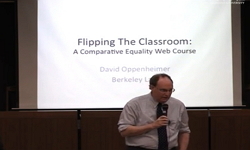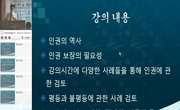It seems difficult to compromise with Plato's national system, which presupposes the absolute reality of truth, and the present-day political system, which presupposes the relativity of truth. However, Plato's ideology of the rule of law, which insist...
http://chineseinput.net/에서 pinyin(병음)방식으로 중국어를 변환할 수 있습니다.
변환된 중국어를 복사하여 사용하시면 됩니다.
- 中文 을 입력하시려면 zhongwen을 입력하시고 space를누르시면됩니다.
- 北京 을 입력하시려면 beijing을 입력하시고 space를 누르시면 됩니다.
플라톤의 『법률』이 오늘날 법조계(法曹界)에 던지는 메시지 - 적도를 갖춘 ‘자유-우애-지성’의 현대적 해석 - = Messages to the legal profession from Plato’s 『NOMOI』 - A modern interpretation of freedomㆍfraternityㆍ intelligence -
한글로보기https://www.riss.kr/link?id=A108014709
- 저자
- 발행기관
- 학술지명
- 권호사항
-
발행연도
2021
-
작성언어
-
-
주제어
플라톤 ; 법률 ; 법의 지배 ; 자유-우애-지성 ; 평등 ; 공화 ; 법률가 ; 공적 의무 ; 공론의 장 ; Plato ; NOMOI ; rule of law ; freedom-fraternityintelligence ; equality ; republic ; lawyer ; pulic duty ; public sphere
-
KDC
300
-
자료형태
학술저널
-
수록면
31-55(25쪽)
- 제공처
-
0
상세조회 -
0
다운로드
부가정보
다국어 초록 (Multilingual Abstract)
It seems difficult to compromise with Plato's national system, which presupposes the absolute reality of truth, and the present-day political system, which presupposes the relativity of truth. However, Plato's ideology of the rule of law, which insists that all members of the community obey the law, and our rule of law, which checks extrajudicial power, have something in common in that they give authority to the substance of the law, not the form of the law. In short, from the point of view of ‘the rule of law’, we can confirm the intersection of the two systems.
Dating back about 2500 years, This article attempts to examine the meaning of the ideological elements that operate the rule of law from ancient Plato's thought, and how they can be interpreted and applied today.
Chapter I examines the reason Plato wrote a book titled ‘laws’ and the significance of the rule of law thought as a practical alternative that he suggested after giving up the idea of the rule of iron man. Chapter II analyzes the principle of ‘to metrion and agathon' as a methodology adopted by Plato, and uses the examples of Persia and Athens to apply this as a requirement to operate the rule of law. indicate that they are in a relationship.
Chapter III examines whether the three-sided relationship of liberty-fraternity-intelligence discussed earlier can be applied to today's lawyers. Among them, freedom, fraternity, and intelligence are reinterpreted and applied in a modern sense to lawyers in the judicial field, especially in line with Plato's method of electing public office. Plato's idea that restrictions on civil liberty is a substitution of public liberty rather than the imposition of public obligations applies to lawyers today. Lawyers need a public sphere which is a space of public liberty to discuss their own public duties. The article concludes by pointing out that this should be prepared.
동일학술지(권/호) 다른 논문
-
포스트 코로나19의 ‘국제적 거리두기’ - 루만과 토이브너의 체계이론에 입각한 국제보건법 체계에 대한 분석 -
- 연세대학교 법학연구원 공공거버넌스와 법센터
- 이주은 ( Ju Eun Lee )
- 2021
-
홉스의 『리바이어던』에서 정념과 정치의 관계 - 현대적 비판과 수정 -
- 연세대학교 법학연구원 공공거버넌스와 법센터
- 최영준 ( Choi Youngjoon )
- 2021
-
론 풀러의 『법의 도덕성』에 드러난 형식과 실질의 필연적 상관관계
- 연세대학교 법학연구원 공공거버넌스와 법센터
- 최은영 ( Choi Eun Young )
- 2021
-
한스 켈젠의 법철학에서의 ‘근본규범(Grundnorm)’에 대한 연구 - 한스 켈젠의 『순수법학』에 대한 비판적 고찰을 중심으로 -
- 연세대학교 법학연구원 공공거버넌스와 법센터
- 이대원
- 2021




 KISS
KISS






